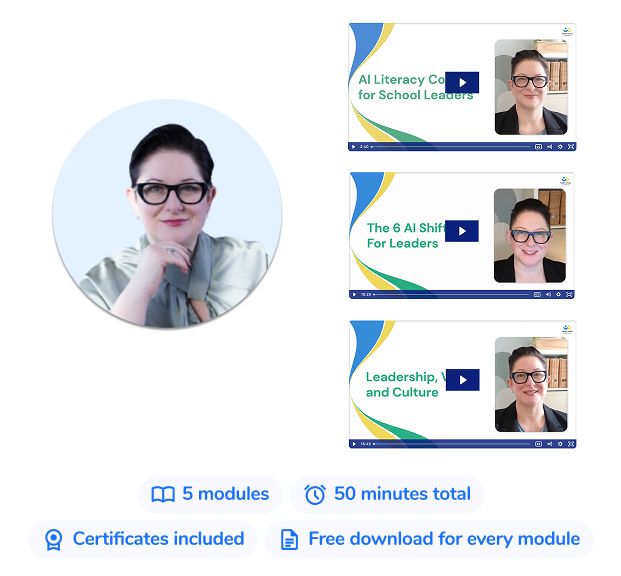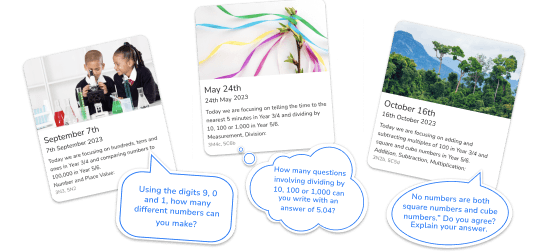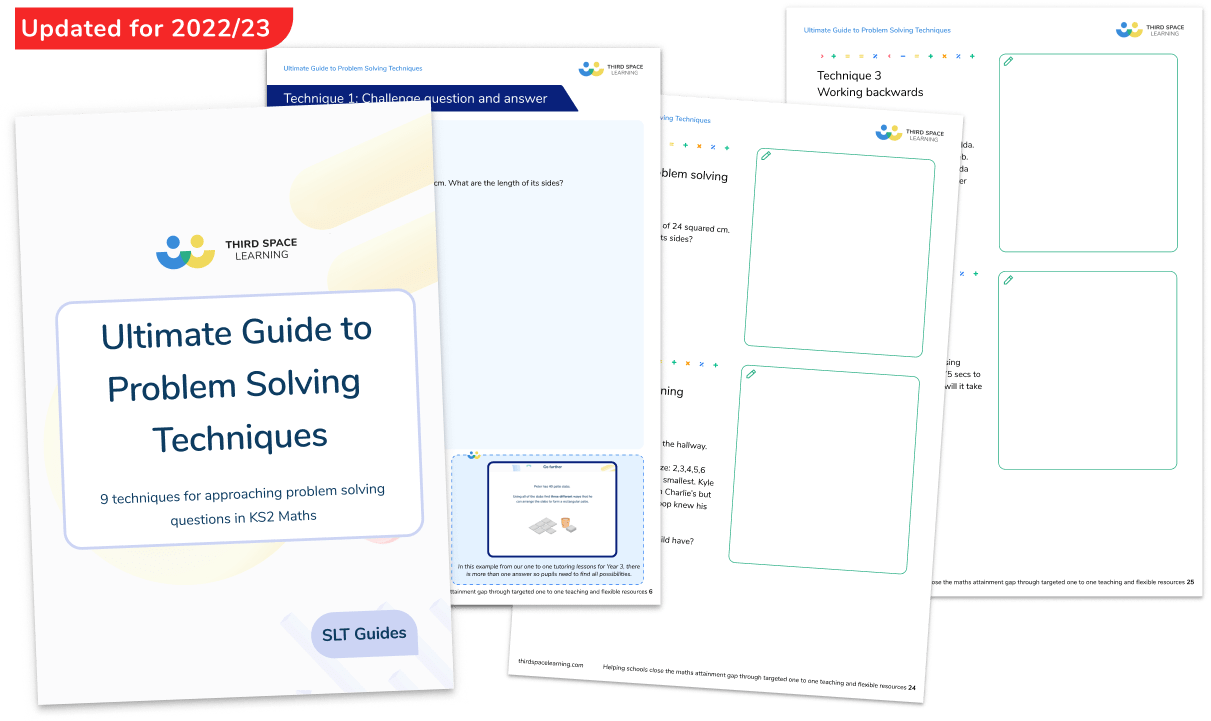Maths Problem Solving: Engaging Your Students And Strengthening Their Mathematical Skills
Maths problem solving can be challenging for pupils. There’s no ‘one size fits all’ approach or strategy and questions often combine different topic areas. Pupils often don’t know where to start. It’s no surprise that problem solving is a common topic teachers struggle to teach effectively to their pupils.
In this blog, we consider the importance of problem solving and share with you some ideas and resources for you to tackle problem solving in your maths classroom, from KS2 up to GCSE.
What is maths problem solving?
Maths problem solving is when a mathematical task challenges pupils to apply their knowledge, logic and reasoning in unfamiliar contexts. Problem solving questions often combine several elements of maths.
We know from talking to the hundreds of school leaders and maths teachers that we work with as AI maths tutoring providers that this is one of their biggest challenges: equipping pupils with the skills and confidence necessary to approach problem solving questions.
The Ultimate Guide to Problem Solving Techniques
Download these 9 ready-to-go problem solving techniques that every pupil should know
Download Free Now!Why is maths problem solving so difficult?
The challenge with problem solving in maths is that there is no generic problem solving skill that can be taught in an isolated maths lesson. It’s a skill that teachers must explicitly teach to pupils, embed into their learning and revisit often.
When pupils are first introduced to a topic, they cannot start problem solving straight away using it. Problem solving relies on deep knowledge of concepts. Pupils need to become familiar with it and practice using it in different contexts before they can make connections, reason and problem solve with it. In fact, some researchers suggest that it could take up to two years to do this (Burkhardt, 2017).
At Third Space Learning, we specialise in AI maths tutoring for schools, from KS1 all the way up to GCSE. Our lessons are designed by maths teachers and pedagogy experts to break down complex problems into their constituent parts. Skye, the AI tutor, then carefully scaffolds learning to build students’ confidence in key skills before combining them to tackle problem solving questions.

How to develop problem solving skills in maths
In order to develop problem solving skills in maths, pupils need lots of different contexts and word problems in which to practise them and the opportunity to engage in mathematical talk that draws on their metacognitive skills.
The EEF suggests that to develop problem solving skills in maths, teachers need to teach pupils:
- To use different approaches to problem solving
- Use worked examples
- To use metacognition to plan, monitor and reflect on their approaches to problem solving
Below, we take a closer look at problem solving at each stage, from primary school all the way to GCSEs. We’ve also included links to maths resources and CPD to support you and your team’s classroom teaching.
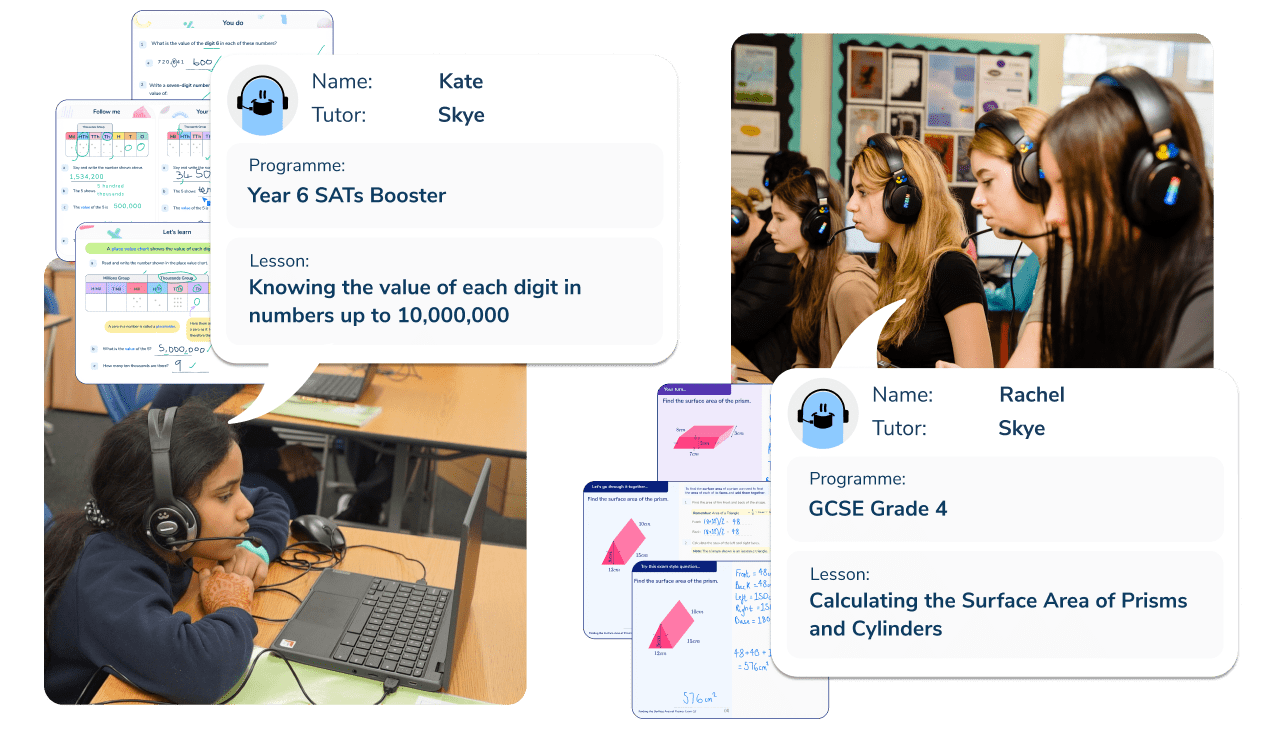
Meet Skye, the voice-based AI tutor making maths success possible for every student.
Built by teachers and maths experts, Skye uses the same pedagogy, curriculum and lesson structure as our traditional tutoring.
But, with more flexibility and a lower cost, schools can scale online maths tutoring to support every student who needs it.
Watch Skye in actionMaths problem solving KS2
At lower KS2, the National Curriculum states that pupils should develop their ability to solve a range of problems. However, these will involve simple calculations as pupils develop their numeracy skills. As pupils progress to upper KS2, the demand for problem solving skills increases.
“At this stage, pupils should develop their ability to solve a wider range of problems, including increasingly complex properties of numbers and arithmetic, and problems demanding efficient written and mental methods of calculation. With this foundation in arithmetic, pupils are introduced to the language of algebra as a means for solving a variety of problems.” National curriculum in England: mathematics programmes of study (Upper key stage 2 – years 5 and 6)
KS2 problem solving can often fall into the trap of relying on acronyms, such as RICE, RIDE or even QUACK. The most popular is RUCSAC (Read, Underline, Calculate, Solve, Answer, Check). While these do aim to simplify the process for young minds, it encourages a superficial, formulaic approach to problem solving, rather than deep mathematical thinking. Also, consider how much is wrapped up within the word ‘solve’ – is this helpful?
We teach thousands of pupils KS2 maths problem solving skills every week through our maths AI tutoring with Skye. In our interventions, Skye is trained to encourage deep mathematical thinking by using a simplified version of George Polya’s four stages of problem solving. Here are the four stages:
- Understand the problem
- Devise a strategy for solving it
- Carry out the problem solving strategy
- Check the result
We use UCR as a simplified model: Understand, Communicate & Reflect. You may choose to adapt this depending on the age and ability of your class.
For example:
Maisy, Heidi and Freddie are children in the same family. The product of their ages is a score. How old might they be?
Understand the problem
There are three people.
There are three numbers that multiply together to make twenty (a score is equal to 20). There will be lots of answers, but no ‘right’ answer.
Communicate
To solve the word problem we need to find the numbers that will go into 20 without a remainder (the factors).
The factors of 20 are 1, 2, 4, 5, 10 and 20.
Combinations of numbers that could work are: 1, 1, 20 1, 2, 10 1, 4, 5 2, 2, 5.
Reflect
The question says children, which means ‘under 18 years’, so that would mean we could remove 1, 1, 20 from our list of possibilities.
Skye is trained to create a nurturing learning environment where pupils feel safe to make mistakes. This is so important in the context of problem solving as the best problem solvers will be resilient and able to overcome challenges in the ‘Reflect’ stage.
Read more: What is a growth mindset
The resource reflects on how metacognition can enhance reasoning and problem solving abilities, the ‘curse’ of real life maths (think ‘Carl buys 60 watermelons…) and how teachers can practically implement and teach strategies in the classroom.
You may also be interested in:
Maths problem solving KS3
At KS3, the importance of seeing mathematical concepts as interconnected with other skills, including problem solving, is foregrounded. The National Curriculum also stresses the importance of a strong foundation in maths before moving on to complex problem solving.
“Mathematics is an interconnected subject in which pupils need to be able to move fluently between representations of mathematical ideas. The programme of study for key stage 3 is organised into apparently distinct domains, but pupils should build on key stage 2 and connections across mathematical ideas to develop fluency, mathematical reasoning and competence in solving increasingly sophisticated problems” National curriculum in England: mathematics programmes of study (Key stage 3)
“Decisions about progression should be based on the security of pupils’ understanding and their readiness to progress to the next stage. Pupils who grasp concepts rapidly should be challenged through being offered rich and sophisticated problems before any acceleration through new content in preparation for key stage 4.” National curriculum in England: mathematics programmes of study (Key stage 3)
The challenge for KS3 maths problem solving activities is that learners may struggle to get invested unless you start with a convincing hook. Engage your young mathematicians on topics you know well or you know they’ll be invested in and try your hand at designing your own mathematical problems. Alternatively, get some inspiration from our crossover ability and fun maths problems.
Maths problem solving GCSE
Since the new GCSE specification began in 2015, there has been an increased focus on non-routine problem solving questions. These questions demand students to make sense of lots of new information at once before they even move on to selecting the strategies they’ll use to find the correct answer. This is where many learners get stuck.
In recent years, teachers and researchers in pedagogy (including Ofsted) have recognised that open ended problem solving tasks do not in fact lead to improved student understanding. While they may be enjoyable and engage learners, they may not lead to improved results.
SSDD problems (Same Surface Different Depth) can offer a solution that develops students’ critical thinking skills, while ensuring they engage fully with the information they’re provided. The idea behind them is to provide a set of questions that look the same and use the same mathematical hook but each question requires a different mathematical process to be solved.
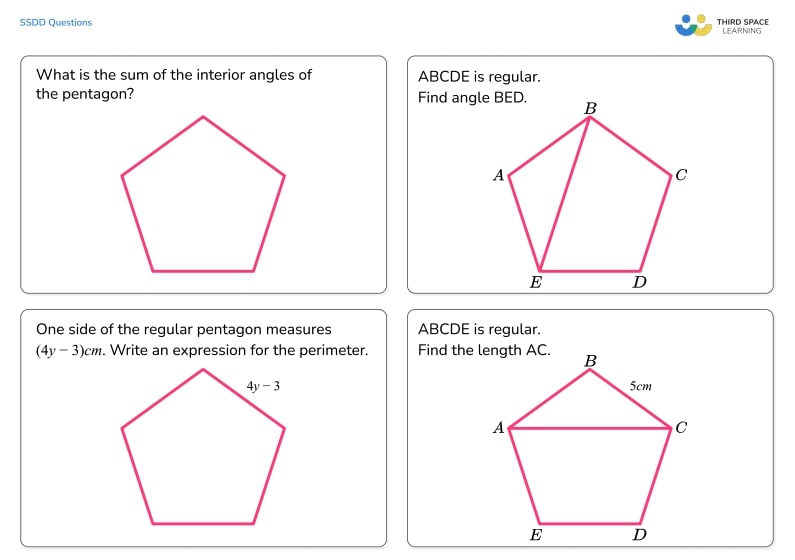
Read more about SSDD problems, tips on writing your own questions and download free printable examples. There are also plenty of more examples on the NRICH website.
Worked examples, careful questioning and constructing visual representations can help students to convert the information embedded in a maths challenge into mathematical notations. Read our blog on problem solving maths questions for Foundation, Crossover & Higher examples, worked solutions and strategies.
Remember that students can only move on to mathematics problem solving once they have secure knowledge in a topic. If you know there are areas your students need extra support, check our Secondary Maths Resources library for revision guides, teaching resources and worksheets for KS3 and GCSE topics.
DO YOU HAVE STUDENTS WHO NEED MORE SUPPORT IN MATHS?
Skye – our AI maths tutor built by teachers – gives students personalised one-to-one lessons that address learning gaps and build confidence.
Since 2013 we’ve taught over 2 million hours of maths lessons to more than 170,000 students to help them become fluent, able mathematicians.
Explore our AI maths tutoring or find out about an online maths tutor for your school.
